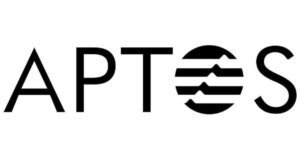 An Ethereum DeFi token surged 400% in hours — and an analyst thinks 4chan is behind it
An Ethereum DeFi token surged 400% in hours — and an analyst thinks 4chan is behind it An Ethereum DeFi token surged 400% in hours — and an analyst thinks 4chan is behind it

Photo by Maciej Ruminkiewicz on Unsplash
While the price action of Bitcoin, Ethereum, and other top cryptocurrencies are predicated on underlying narratives and technical trends, low-cap altcoins rise and fall for the weirdest reasons.
This much was made clear on May 17 and 18, when a small Ethereum-based token rallied by over 400 percent due to one unexpected market catalyst: 4chan.
Ethereum token OCDAI pumps 400% in hours due to 4chan: analyst
On May 17, the price of Opyn’s CDAI Insurance token — which allows users of decentralized finance (DeFi) protocol Compound to obtain insurance on their deposits — exploded higher, rallying from $0.002 to a high of $0.01 within the span of a day.
Normally, OCDAI rallying means that users are fearful of an imminent collapse of Compound or a liquidation event in DeFi, which would see depositors lose all or a portion of their cryptocurrency.
So normally, this wouldn’t have made the news — little-known cryptocurrencies rally all the time, after all.
But according to Daryl Lau, a research analyst at crypto data site CoinGecko, the reason why the altcoin rallied so far and so fast is that “4chan discovered it and decided it was a low cap DeFi coin without even reading what the token is for.”
He cited a thread from 4chan, the storied anonymous online forum, which contained comments like:
“I think this is the earliest I have ever gotten in on something. I have a good feeling about this” and “I would buy OCDAI because of the low supply and real product with a magnificent whitepaper.”
With the cryptocurrency having low liquidity due to OCDAI’s market capitalization being well under $20,000, according to Etherscan, a few buyers from 4chan seemingly sent the altcoin skyrocketing.
The need for insurance in DeFi
Although the pump of the Ethereum token was clearly unnatural, there is a valid need for insurance in the decentralized finance ecosystem, making Opyn and other projects like it valuable in this volatile industry.
As reported by CryptoSlate in April, users of decentralized lending protocol Lendf.me lost approximately $25 million worth of Ethereum, Tether’s USDT, and other cryptocurrencies to a hack.
Just a month earlier, a series of unfortunate events saw multiple users of DeFi’s posterchild, MakerDAO, lose over 100 percent of their funds in a liquidation event when they only should have lost approximately 20 percent. For some victims, the funds were a large portion of their savings.
While Lendf.me has since recovered the funds and MakerDAO has since restabilized, these scenarios highlight the need for insurance mechanisms that allow users to trade portions of their capital for security.
After all, if DeFi truly wants to one-up Wall Street, how will it do so without insurance?




 CoinGlass
CoinGlass 


 Farside Investors
Farside Investors 




























































































